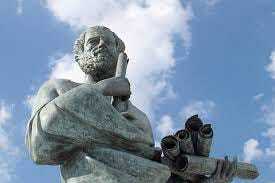What We Learn From Our Teachers (re-posted)

(reposting from last April, in honor of Teacher Appreciation Week)
When online learning started creeping into the world, many teachers reacted with suspicion and alarm, assuming that the adoption of technology would interfere with, rather than help, their daily work, and would most likely be deployed by administrators to reduce staff and save money. I worked in two different online school management companies, and I heard these fears first-hand—and saw that they often were well-founded. Many virtual school operators certainly did (and do) want to find ways to increase the student-teacher ratio and improve their financial bottom-line. And, in the early days at least, the technology was more of a hindrance to instruction than a help.
Scenes from a Broken Hand is a reader-supported publication. To receive new posts and support my work, consider becoming a free or paid subscriber.
When starting from a place of fear and suspicion, teachers may not be the strongest and most confident advocates for themselves. And since they are often represented by labor unions, not professional organizations, the language of their advocacy often sounds more like job and wage protection than any kind of pedagogical treatise.
Do teachers matter? Will they always matter? Now that we have Chat GPT version 3, no 4, no 4.5…is it only a matter of time before generative AI does away with the need for an instructor?
I think the answer to that is, '“Yes If.” Yes, if you believe the sole, or even primary, role of a teacher is to deliver information (AKA “cover the curriculum”) and assess student performance. If that’s all we need teachers for, then we probably don’t need teachers—certainly not highly-paid, highly-credentialed ones. We have myriad methods of communicating information to young people now, many of them more engaging than a lecture delivered in a cinder-block room. And we have increasingly sophisticated ways of assessing whether students understand what they have allegedly learned and can perform the skills that they have been taught.
But is that all a teacher is good for? Is that even mostly what a teacher is good for? I don’t think so.
If I think about my middle and high school experience (the elementary years are too shrouded in mist now to be of much use to me), it’s not specific facts or skills that I remember, but passions, dispositions, and habits of mind. I don’t remember the content; I remember the people. And when I say I remember them, I don’t mean I remember this person being nice or that person being cruel. I mean I remember this teacher’s way of sharing her passion for history, or that teacher’s love of storytelling, or another teacher’s warmth and concern in hearing—really hearing—the needs of her students. I remember my teachers as mentors, and guides, and models of intellectually engaged adulthood. I learned the content and skills required of me, not because they were required of me, but because people I respected—people I wanted to impress, or be like—asked it of me and helped me to do it. That’s what a teacher does, that no AI will ever quite replicate.
Education is not simply a law; it is a rite of passage, a way of becoming part of one’s community. You learn your people’s history, their mythology, their way of seeing the world. You develop the skills necessary to perform a variety of functions in an adult world you are soon to become a part of. When I think of the various rites of passage I know about around the world and through history, zero of them are done completely alone by children. There is always a mentor; there is always a guide. There is always someone whose job it is to steer children through the rite and help them get safely across the threshold to a new state of being. Why? Because that transition is difficult. Sometimes it’s dangerous and scary. Oftentimes, a child would rather not do it—would rather stay in the nursery, among children, playing videogames and having a good time. Who wouldn’t?
In our society, which is bereft of real rites-of-passage, so many people (men especially) look, sound, and behave like teenagers well into their late twenties, or even beyond. I don’t think that’s coincidental. We do a poor job of expecting and demanding transition of our young people, and we continually insult and degrade the people whose job it is to guide our young people from childhood to adulthood. We celebrate and enrich our overgrown children, and we make fun of seriousness, of responsibility, of accountability. We would rather play. Who wouldn’t?
I will put it this way: we should respect our teachers, because there is no functioning society without them. A computer program that offers up content and assessments will blink uselessly on a screen, with no one looking at it and no one learning from it, if there is no caring, engaged adult creating a community of learning in which, perhaps, that program can play a role. A teacher says, “Here is the world; come be a part of it. I will show you how.”
I taught English because I thought literature was important, just for its own sake, qua literature. I was mistaken. Literature doesn’t have a sake. Only people have a sake. The world has a sake. If I don’t know how my subject of specialization can make life in this world better, for an individual and for a nation, then there’s no particular reason to teach it to everyone.
Teachers need to do a better job of making the case for what they teach, and why they teach, and why they matter. Because they matter quite a lot.
Scenes from a Broken Hand
- Andrew Ordover's profile
- 44 followers



